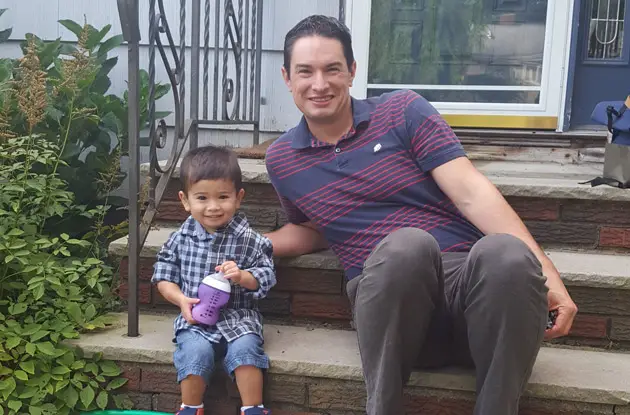
My Son Is My Best Reason Yet to Learn to Limit My OCD Behaviors
Whether it's genetic or environmental, I'm doing what I can to reduce my son's chances of developing OCD.
Get can’t-miss family activities sent to you!
Get the Best Family Activities
Until now. Until Nicholas.
If Nicholas develops OCD via overwhelming genetics, so be it. But if nurture plays a determining role, it’s my responsibility to prevent my son from following in my pavement crack-averse footsteps.
From a parenting perspective, this dilemma’s simplicity is refreshing. Even at age 2, raising Nicholas presents a spectrum of gray areas. Is he eating enough? Learning enough? Interacting enough? Answers typically fall into the “probably,” “I think so,” or “I have no idea” columns. Clear-cut cases of yes and no are elusive.
Not so with this issue. It’s a must-do.
In spite—or perhaps because—of this, the execution is exceptionally intimidating. So are the stakes: There is absolutely nothing in which I am more invested than my only child. For his sake, I simply cannot fail at this, and that fact is overwhelming.
Sometimes I watch him at play—a carefree mind concocting universes where roaring dinosaurs and anthropomorphized trains coexist—and can’t imagine burdening that innocence with my compulsions. That my failing is even a possibility brings deep shame, and I feel guilty even though the jury is still out.
The disorder’s volatility adds even more pressure. My OCD is relatively minor, but those who are not as lucky as I am can be hindered or even debilitated by it. What if Nicholas not only gets it from me, but gets it worse than me?
It is with this tenuous poker hand—these imperfect cards, these unknowable variables and outcomes—that I simply have to go all in. I do this by default, as neither standing pat nor folding are viable options.
My path to success is straight but uphill: Cognitive behavioral therapy is the most proven way to overcome mild-to-moderate OCD such as mine. The specific therapy is astoundingly simple, yet exceedingly difficult: exposure and response prevention, which is clinical speak for facing my triggers without acting on my fear-based physical impulses.
Apparently, there’s a catch phrase to this: “Better sane than safe.” The fact that such a phrase exists is, well, kind of insane.
Nevertheless, here we go. The shoe rack is about to get less tidy, the light fixtures less flickered, my teeth less clenched (and hopefully less sore).
Wish me luck. It’ll be a tough road. Thankfully my son—my ultimate motivator—is riding shotgun.
RELATED: Read More Essays from Local Parents








